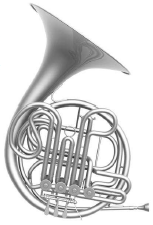REsources for Living
April 1, 2015Podcast: Download (4.5MB)
Subscribe: More
 There are plenty of things to wonder about in the Easter story, but here’s one of them. If Jesus was a miracle healer, someone who cured everything from blindness to skin disease, someone who even raised a man from the dead, then why didn’t he heal himself?Why not fix up his own wounds while he was on the cross?
There are plenty of things to wonder about in the Easter story, but here’s one of them. If Jesus was a miracle healer, someone who cured everything from blindness to skin disease, someone who even raised a man from the dead, then why didn’t he heal himself?Why not fix up his own wounds while he was on the cross?
One Christian answer is that Jesus chose to suffer and die, offering himself as a sacrifice to pay for the sins of everyone else. But it’s pretty hard to figure out how one person suffering terribly would work to pay off all the things that everyone had done or would do wrong. Two wrongs don’t make a right. And it’s hard to imagine a loving God who would see having a beloved one in misery as being any kind of a solution. The logic of atonement, of Jesus choosing to buy back sinful souls, works for some people, but I don’t get it.
Of course, another possibility would simply be that Jesus didn’t work miracles at all, and that the stories of his miraculous ability to heal people were made up to make him look more powerful and holy.
Or maybe neither of these answers really gets at the point of Easter. Jesus, after all, is not healed in the sense of getting fixed and going back to just how he was before the crucifixion. Unlike Lazarus, who Jesus is said to have brought back after having been dead for four days, Jesus doesn’t just get up, brush off his robes, and get on with life. He isn’t healed, he’s resurrected.
Which is a kind of healing, but not the kind you usually think of when someone says that the scrape on their knee has healed. Resurrection is about dying and then coming back to a new life. If Jesus had just patched himself back together and called himself healed it would have been remarkable, but it wouldn’t have been much basis for a religion. But resurrection is a different story. Resurrection is about all the ways in which our wounds don’t go away, but we manage to find new life, not in spite of those wounds, but because of them.
Years ago I used to listen to a great radio show, called From the Top, which features young classical musicians. The children and youth on this show are amazing, and it was always a pleasure to hear both the music and the interviews. But only one show has really stuck with me. On it, they featured a young man who had played oboe on the show a couple of years previously.
Like all the kids on the show, he was stellar. But some months after his oboe playing was featured on this radio show he had an accident that took off three of his fingers, and ended his promising future as an oboist. Those fingers weren’t coming back. He wasn’t going to be healed, and playing the oboe was just not going to happen. His life wasn’t over, but for someone who had been utterly dedicated to his music, I’m sure it felt that way.
But the show I listened to wasn’t about sympathy for the loss of a musical career. They had him back on to play music. Because it turned out that while he wasn’t able to play oboe with missing fingers, it was perfectly possible to play the French horn. This young man died as an oboe player, but was reborn as an artist on the French horn. The wounds didn’t go away, but they led to him finding a new life, a new way forward. Maybe it wasn’t what he would have chosen, but it was life, a way to follow his passion. It wasn’t healing, it was resurrection.
Jesus died as a man, but was reborn as message of love and justice that has lived for many centuries longer than any human body could. The message of Easter is not an easy assurance that whatever happens to you, you will find healing and be good as new. The message of Easter is that even in the hardest times it is possible that you will be made new, born again with a sense of purpose that doesn’t take away the pain of the wounds, but gives them meaning.
Just ask the parents who have lost children to gun violence who are now campaigning for sensible gun controls. Just ask the poets and painters who have turned grief into art. Just ask the folks who have come up from the depths of addiction to counsel and mentor others who are engaged in that struggle. Resurrection is a story, but it’s a story that happens in real life, over and over again, as people struggle their way to new life.
- REsources for Living - December 1, 2020
- A Fond Goodbye - December 1, 2020
- REsources for Living - November 1, 2020
Quest Monthly Print Edition
Recent Issues
Latest Spiritual Reflection Posts
Weekly Newsletter
About
Quest for Meaning is a program of the Church of the Larger Fellowship (CLF).
As a Unitarian Universalist congregation with no geographical boundary, the CLF creates global spiritual community, rooted in profound love, which cultivates wonder, imagination, and the courage to act.
Contact
Church of the Larger Fellowship Unitarian Universalist (CLFUU)
24 Farnsworth Street
Boston MA 02210

